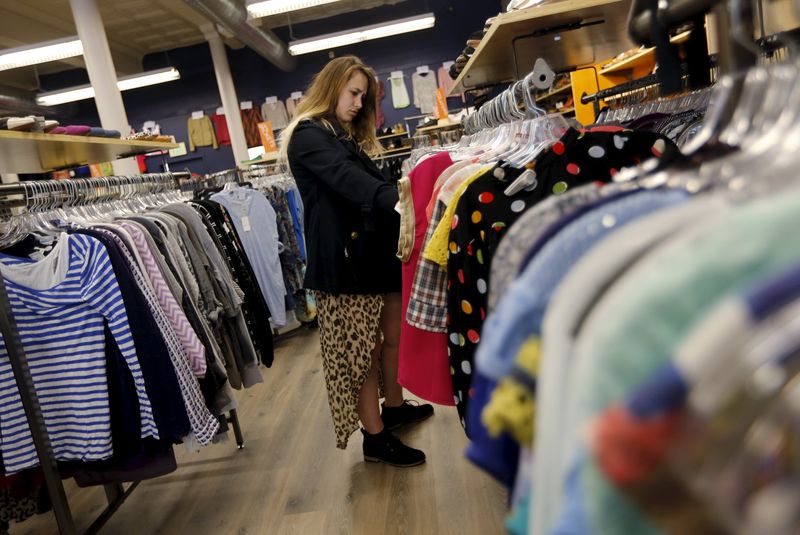(Bloomberg) -- Sentiment among American consumers posted a surprise jump in October amid expectations for rising incomes and lower inflation, indicating households will continue to extend the longest-running U.S. expansion.
The University of Michigan's preliminary sentiment index advanced to a three-month high of 96 from September’s 93.2, data showed Friday. The median estimate of economists was for a decline to 92. The gauge of current conditions climbed to the highest level this year while the expectations index improved.
Key Insights
- Even with the improved sentiment, lower inflation expectations -- closely monitored by the Federal Reserve -- could lend more support to a third straight interest-rate cut later this month. Inflation expectations over the next five to 10 years dropped to 2.2% in October, the lowest level in records back to 1979, from 2.4% a month earlier.
- The second-straight advance in sentiment is just the first back-to-back gain since March. While consumers continue to enjoy steady job and income growth, concerns about the economy’s prospects in light of the trade war continue to linger though lessened slightly in October, according to the report.
- The report showed a widening gap between consumer expectations by political party, with Republicans growing more confident and Democrats' sentiment the weakest since October 2008. Overall, “the impeachment inquiry has not had a significant negative impact on economic prospects,” the report showed.
- Consumers' outlooks of their inflation-adjusted incomes increased to the “most favorable level in two decades,” the report showed, helping to boost buying plans. Views of the economic outlook showed more modest expectations, with some expecting a slight uptick in the unemployment rate.
Official's View
“Overall, the data indicate that consumption spending will be strong enough to offset weakness in business investment spending so as to keep the economy expanding into 2020,” Richard Curtin, director of the University of Michigan consumer survey, said in a statement.
Consumer expectations for inflation in the year ahead dropped to 2.5% -- matching the lowest since late 2017 -- from 2.8%. A measure of buying conditions for big-ticket durable goods increased to a four-month high of 160.One caveat in the report: About one-third of consumers expected unemployment to rise, compared with 20% anticipating a further decline and 46% seeing no change.
